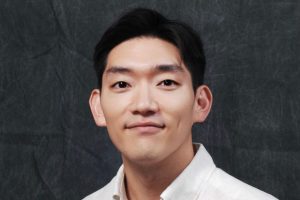
Abstract: Fibrosis is both a consequence of and a contributor to a vast range of cardiovascular pathological conditions, from inherited cardiomyopathies to ischemic heart disease; however, effective therapies remain elusive. Longstanding biological and technical bottlenecks in the field include: (i) the lack of fibroblast-specific druggable targets and delivery methods, and (ii) an often-overlooked positive feedback loop in which the stiffened fibrotic tissue environment perpetuates further activation and transdifferentiation of fibroblasts into myofibroblasts, even after the initial pro-fibrotic signals (e.g., inflammatory cytokines) subside. In this seminar, I will introduce a new framework for addressing both of these critical challenges, based on
identification of a cardiac stroma-enriched mechanosensor gene that can be targeted pharmacologically to coerce myofibroblasts into perceiving a stiff pro-fibrotic environment as soft, in vivo. Our studies demonstrate across multiple scales—from iPSC-derived cells and engineered tissues to animal models of heart failure—that fibroblast-selective inhibition of matrix mechanosensing induces a robust transcriptomic, morphological, and metabolic shift towards quiescence, in concert with soluble regulators of the
TGFβ pathway. The seminar will explore mechanistically how such coordinated signaling between soluble (biochemical) and insoluble (mechanical) cues from the fibrotic niche regulates cellular plasticity, and will examine the synergistic effects of this dual approach in attenuating fibrosis and alleviating contractile dysfunction in failing hearts. Collectively, these studies provide the first example of a proof-of-concept, combination ‘mechanotherapy’ for treating cardiovascular fibrosis, the conceptual basis of which could be extended to various organ systems.
Bio: Sangkyun (Sang) Cho, is an Instructor in the lab of Joseph Wu in the Cardiovascular Institute at Stanford University. He earned his bachelor’s degree in Chemical and Biomolecular Engineering from Johns Hopkins University and completed his PhD training under the mentorship of Dennis Discher at the University of Pennsylvania. His doctoral research at Penn focused on mechanisms of nuclear envelope mechanosensing in cardiac development and aging, and uncovered the pivotal role that the nuclear lamina plays in conferring adaptive protection against mechanical stress in the beating heart. At Stanford, Cho’s current work explores a broad
range of topics at the intersection of engineering, cardiovascular systems biology, and precision medicine. He is particularly interested in leveraging engineering-inspired tools and principles to develop new targeted ‘mechanotherapies’ for treating
cardiovascular fibrosis and heart failure. Cho has received multiple awards throughout his training, including the NIH F32 Ruth L.
Kirschstein-NRSA Postdoctoral Fellowship, the American Heart Association Career Development Award, and the NIH K99/R00 Pathway to Independence Award.